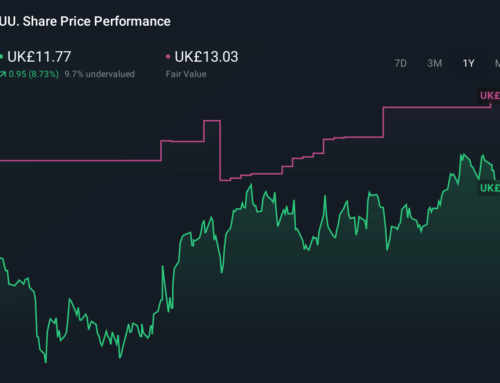Judge rejects challenge to electricity plan for Meta’s huge Louisiana data center
April 8, 2025
A Baton Rouge judge has dismissed a second challenge to Entergy’s plan to power Meta’s $10 billion AI data center in northeast Louisiana, ruling that the tech giant does not need to come to the table as a party in the proposal before state regulators.
A group of environmental and consumer nonprofits had argued that key information about job creation and sustainability was absent from Entergy’s proposal and could only be addressed if Meta joins the proceedings. But administrative law judge Melanie Verzwyvelt sided with Entergy on Friday, arguing that there is not enough justification or legal precedent for Meta — and subsidiary company Laidley LLC — to join the process.
Whether Entergy’s request to power the data center with three new gas plants is in the public interest will have to be proven when state utility regulators at the Public Service Commission issue a final ruling on the application. Verzwyvelt also wrote that the advocacy groups still had other avenues to try to obtain information from Meta, such as subpoenas or depositions.
“The commission has multiple regulatory remedies at its disposals, and since we believe that the commission has the tools necessary to take whatever action it deems appropriate under the circumstances, Laidley and Meta are not necessary parties to this proceeding,” Verzwyvelt wrote in her decision.
Following a March hearing on the case, Logan Burke, the executive director of the Alliance for Affordable Energy, which has intervened in the case, said that the advocacy group would likely pursue depositions to unearth more information.
‘Cover a significant portion of Manhattan’
Entergy wants to build three gas-fired power plants at a cost of over $3 billion to power Meta’s 4 million-square-foot Richland Parish data center project, which would be the company’s largest. In January, Meta founder and CEO Mark Zuckerberg touted the Louisiana project in a Facebook post as a central component of the company’s AI expansion.
“To power this, Meta is building a 2GW+ datacenter that is so large it would cover a significant portion of Manhattan,” Zuckerberg wrote.
The electricity demands Zuckerberg describes are steep — the amount to power around 2 million homes.
A lawyer representing the advocacy groups in a March hearing argued that Entergy’s proposal lacks key information, including an analysis supporting Meta’s claims that the data center will provide 300 to 500 jobs, details of the tech company’s sustainability commitments and an explanation of its need for “urgent” power.
Skeptics of the project are broadly concerned about a lack of public information — such as the actual contract between Entergy and Meta — that ensures average ratepayers will not be forced to cover the costs of the facility.
Partly for that reason, Ari Peskoe, the director of the electricity law initiative at Harvard Law School, said the case is “possibly the worst deal for ratepayers in the country with regard to these data centers.” Peskoe, who is not affiliated with the case, questioned whether ratepayers would ultimately be on the hook for some of the costs.
In its filings, Entergy states that Meta is paying for the full annual revenue of the generators for 15 years and that the tech company “will contribute a large percentage of the costs that would otherwise be borne by all of [Entergy’s] customers.” The life of one such plant can exceed 30 years, advocates have noted.
During the hearing on whether Meta needed to join the case, Entergy stressed that the issue before regulators is not about approving a data center, but approving electricity generation, Skylar Rosenbloom, a lawyer representing the utility, explained.
Dana Shelton, a lawyer for the PSC staff, argued that the advocacy groups were using the case to advance their campaign for renewable energy sources. The groups had filed a previous unsuccessful motion arguing that Entergy didn’t show that the three fossil fuel-powered plants were the most cost-effective option.
“[The Alliance for Affordable Energy] does seem to also want to advance clean energy technologies and advance those technologies over fossil fuel resources,” Shelton said to the judge during the March hearing. “That is an agenda, your honor, that is not consistent with the majority of Louisiana’s electorate.”
‘Disincentive for new industry’
The day before the judge’s ruling, Entergy CEO Phillip May submitted a letter to regulators stressing the significance of the “world-class data center” in Richland Parish, which has been touted as a win for a long-struggling area of the state. May said that there is no rule or policy mandating its customers to join the application to regulators.
“In [Entergy’s] experience, such a requirement is unprecedented and would create a disincentive for new industry to select Louisiana as a place to make investment,” May wrote.
May attached an April 2 letter from Meta supporting Entergy’s application and the benefits the company will bring to Louisiana.
In the letter signed by Paul Kelly, the company representative said the data center will support 500 operational jobs and up to 5,000 construction workers, adding that efforts would be made to hire locally.
Meta is also promising $200 million in infrastructure improvements and says it is matching all data center electricity use with clean and renewable energy, the letter says.
“Because we are working diligently to construct the project for immediate use, it is important that [Entergy] received timely approval,” Kelly wrote. “…we are growing more and more confident that [Entergy] will ultimately receive the necessary approvals to keep our project on track.”
The letter also echoed Entergy’s arguments on the need for urgent power, saying that without commitments on infrastructure “Meta would have been forced to select another location outside Louisiana for the project.”
Search
RECENT PRESS RELEASES
Related Post




